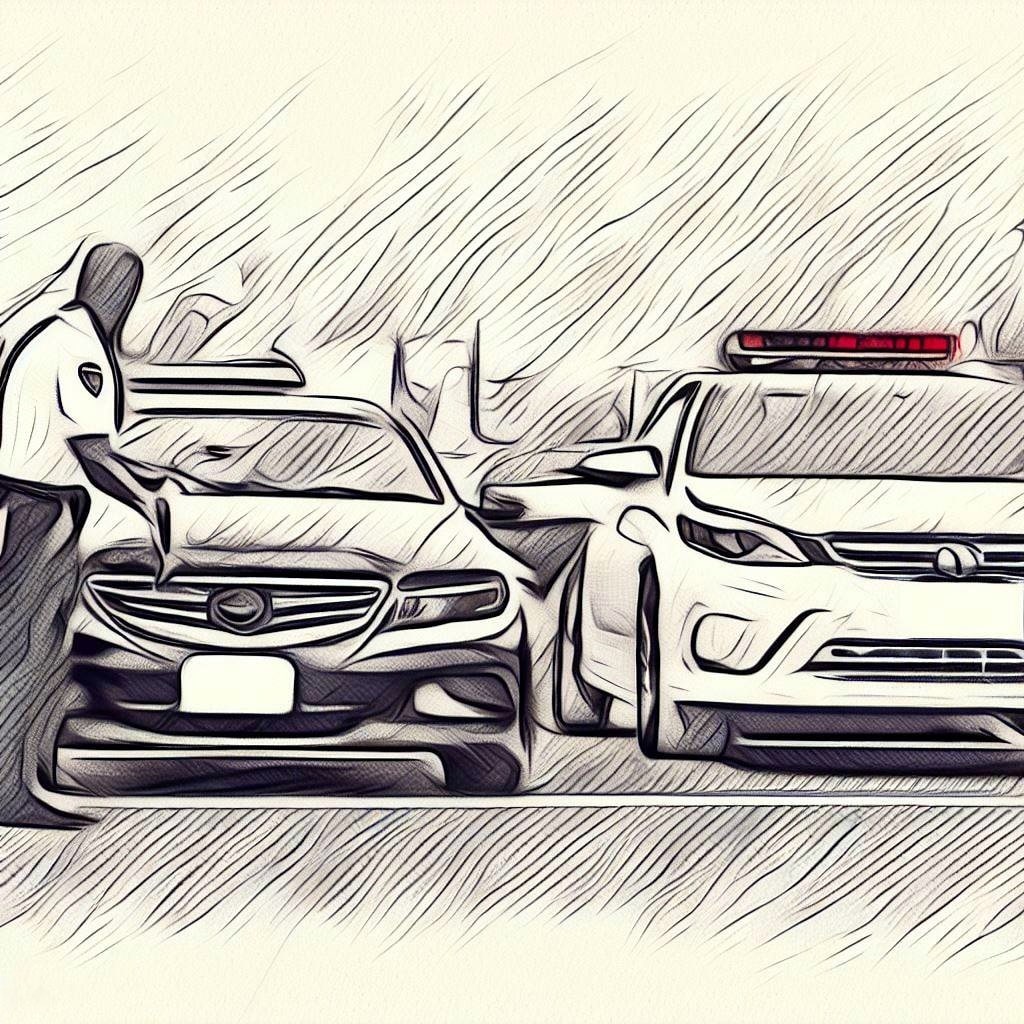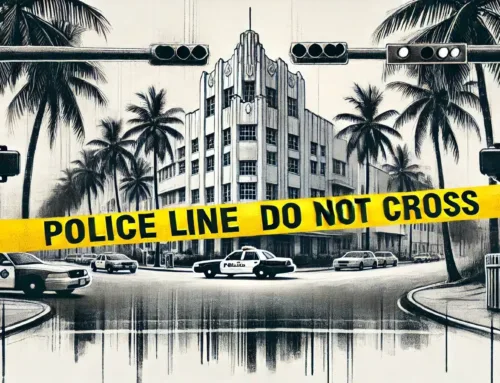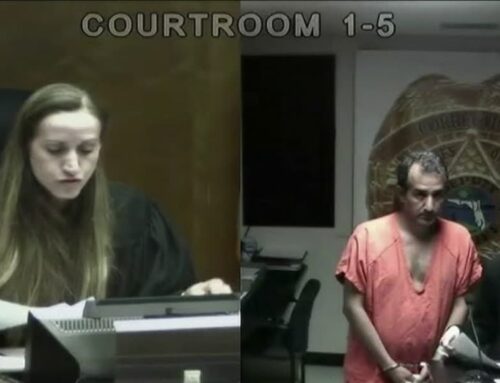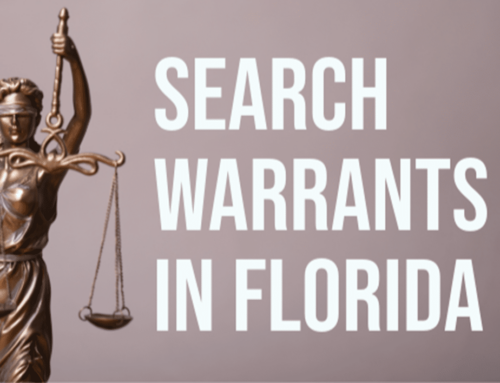Can a Police Officer Arrest You Outside Their Jurisdiction in Florida?
You’re driving down the highway when you see those familiar flashing red and blue lights in your rearview mirror. You pull over, expecting to get a speeding ticket from the local police department. But when the officer approaches your window, you notice his uniform says he’s from a different city. Can an officer really pull you over and arrest you outside of where he works, in other words, outside of his jurisdiction?
This is a common question I get as a Miami criminal defense attorney. Florida law limits officers to making arrests within the jurisdiction where they work. But some exceptions allow cops to reach outside their normal boundaries and still have the arrest held up in court.
In this post, I’ll explain when police can and can’t arrest you outside their home turf, including:
- Territorial authority of city, county, and state officers
- Exceptions for fresh pursuit and mutual aid agreements
- The “color of office” doctrine
- What to do if you’re arrested outside an officer’s jurisdiction
An Officer’s Powers Are Limited to Their Territory
Florida sets geographical limitations on an officer’s authority to make arrests and conduct investigations. These boundaries depend on what agency the officer works for:
- City police officers can only act as cops when within their municipality. Once they cross the city limit, they become ordinary citizens again.
- County sheriff deputies similarly only have authority when operating inside their county’s borders.
- State law enforcement officers, like highway patrol and state police, have jurisdiction throughout the state.
So generally, a police officer can only arrest you within the geographical area they have policing power. If a city cop pulls you over in the next town over, any arrest would likely be thrown out in court as unlawful due to the officer acting outside his jurisdiction.
Three Exceptions Allow Officers to Arrest Outside Their Jurisdiction
While the above territorial restrictions are the general rule, Florida law carves out three exceptions that let officers make arrests outside their home turf:
1. Fresh Pursuit of a Fleeing Suspect
If the police are chasing a suspect who committed a crime within their jurisdiction, they can continue pursuing and ultimately arrest that person even after leaving their home area.
For this “fresh pursuit doctrine” to apply, a few conditions must be met:
- The pursuit started immediately after the crime occurred. There can’t be a long gap in time.
- The chase has to be continuous, without the officer giving up at any point.
- The crime has to be a felony, misdemeanor, or local ordinance violation.
As long as those requirements are satisfied, the officer can arrest the suspect once catching up to them, even if it’s a different jurisdiction.
The arresting officer must then promptly contact the agency where the arrest took place and process the suspect through their local courts. But the arrest itself will stand.
2. Mutual Aid Agreements Between Departments
Many police and sheriff’s departments have mutual aid agreements with neighboring jurisdictions. These contracts allow officers from one agency to have full powers when operating in the other agency’s territory.
For example, the Miami and Miami Beach police departments have an agreement letting both agencies’ cops make arrests and conduct investigations across city limits under certain circumstances. So a Miami officer could legally arrest you in Miami Beach and vice versa.
These agreements only apply to the specific jurisdictions that signed on. A mutual aid contract between two small towns wouldn’t allow their officers to operate freely everywhere in the county.
3. Citizen’s Arrest Authority When Not Acting as a Police Officer
Even when off-duty, an officer doesn’t lose the basic arrest powers that all citizens have under Florida law. As a private citizen, a cop can arrest anyone who:
- Commits a felony in their presence
- Commits a breach of peace in their presence
- Is suspected of committing a felony when the citizen has probable cause
However, the officer can’t use their position of authority or access special police resources only available to them on duty. This “color of office” doctrine means they have to truly be acting as an ordinary citizen without relying on police powers.
For example, an officer from one county could arrest a drunk driver in another county after witnessing him swerving all over the road and hitting mailboxes. The cop couldn’t have pulled the driver over using lights and sirens. But making a normal citizen’s arrest after the fact would be valid, even outside his jurisdiction.
What to Do If You’re Arrested Outside an Officer’s Normal Authority
If you were arrested by an officer acting outside their normal boundaries, the charges against you could potentially get thrown out. But you need to properly raise the jurisdiction issue. Here are some tips:
- Don’t resist arrest. You won’t win fighting with the officer roadside. Save your jurisdictional challenge for court.
- Get the officer’s identifying information. Note their name, agency, badge number, and any other details. This will help prove they were out of their jurisdiction.
- Hire a criminal defense lawyer. An experienced attorney can request evidence and dig into the officer’s authority to arrest you. They know how to file motions challenging any lack of jurisdiction.
- Remain silent and wait for court. Don’t answer police questions or admit to anything. You have the right to stay silent. Let your lawyer handle asserting your rights.
- File a complaint. Even if the criminal case gets dismissed, you can file an internal affairs complaint over the improper out-of-jurisdiction arrest. This creates a record of the officer’s wrongdoing.
Don’t just assume the police can arrest you wherever they want in Florida. Territorial restrictions exist for a reason on their powers. Knowing your rights and hiring an aggressive defense attorney can help your chances of beating charges from an officer acting outside their bounds.
CALL US for a FREE CONFIDENTIAL CONSULTATION at (305) 538-4545, or take a moment to fill out our secure intake form.* The additional information you provide will greatly assist us in responding to your inquiry.
*Due to the large number of people who contact our law office requesting our assistance, it is strongly suggested that you take the time to provide us with specific details regarding your case by filling out our confidential and secure intake form. The additional details you provide will greatly assist us in responding to your inquiry promptly and appropriately.
ALWAYS INVESTIGATE A CRIMINAL DEFENSE ATTORNEY’S QUALIFICATIONS AND EXPERIENCE BEFORE MAKING A DECISION ON HIRING A LAWYER FOR YOUR CRIMINAL CASE IN MIAMI-DADE COUNTY








